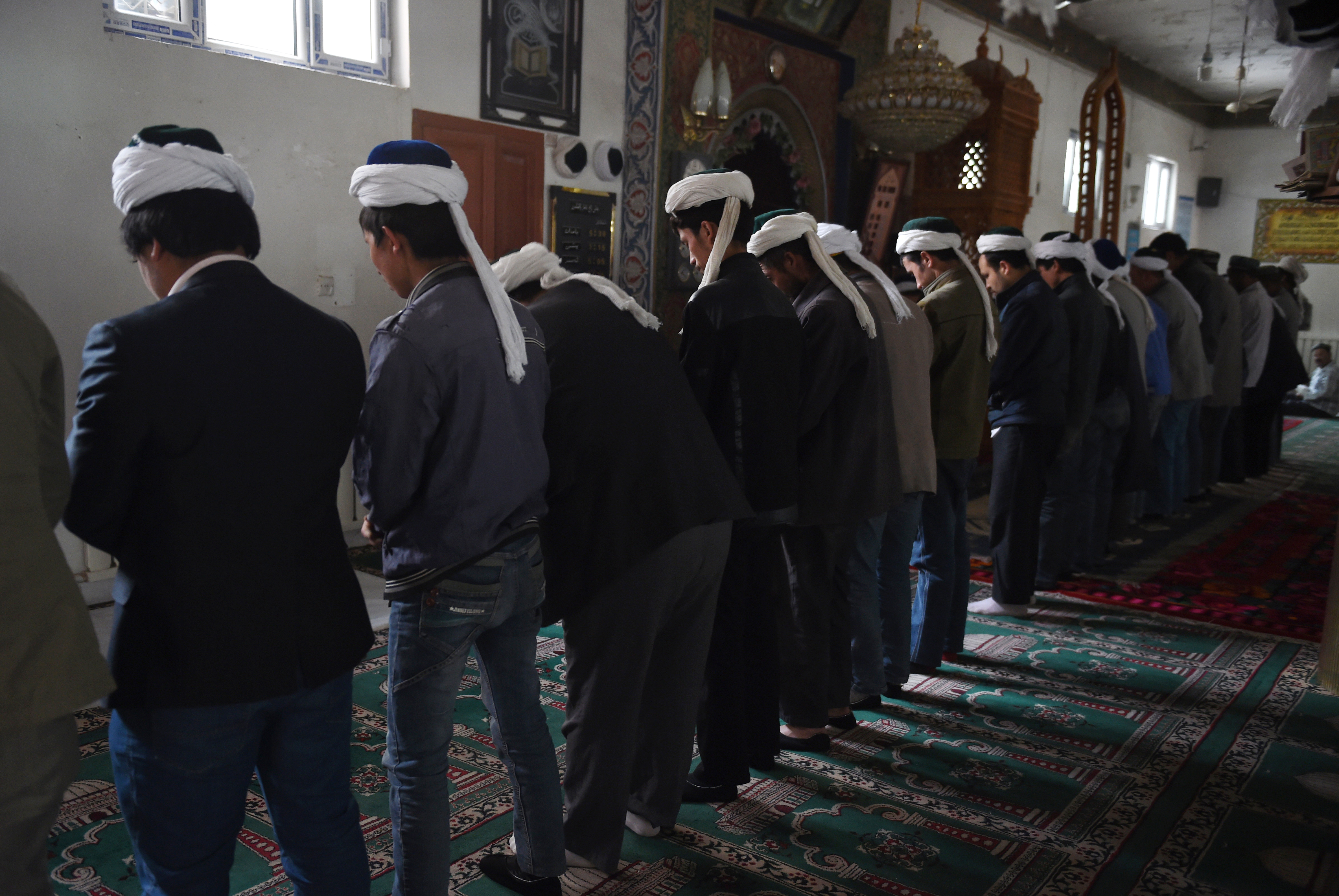Erik Prince-linked FSG signs preliminary Xinjiang training deal
Uighur Muslims in China have experienced a huge security crackdown
(Greg Baker)
Hong Kong (AFP) – A Hong Kong-listed security firm who has a former US Navy SEAL on its board has signed a preliminary deal with authorities in China to build a training centre in Xinjiang, where Uighur Muslims have experienced a huge security crackdown.
Frontier Services Group, which specialises in providing security and logistics for businesses operating in risky regions, said it had signed a deal to run a training base in the city of Kashgar, according to a statement posted on its Chinese website.
One of the firm’s board members and its deputy chairman is Erik Prince, a former SEAL and the brother of US Education Secretary Betsy DeVos.
Prince was the founder of the US military contractor Blackwater, whose mercenaries had a prominent and controversial role during Washington’s wars in Iraq and Afghanistan — including the 2007 killing of 14 unarmed Iraqi civilians by Blackwater employees.
FSG, which has a Hong Kong headquarters, has built up a wealth of contracts both inside China and for Chinese companies operating overseas, particularly in Africa.
But its presence in Xinjiang is controversial because of the sweeping security crackdown Chinese authorities have launched in the restive far-western region, including reported mass incarcerations.
On Friday, a spokesman told AFP that Prince — a minority shareholder — was unaware of the deal, which was preliminary and would need sign off from all board members before final approval.
“He had no knowledge or involvement whatsoever with this preliminary memorandum regarding the company’s activity in Xinjiang,” the spokesman said.
Up to one million Uighurs and members of other mostly Muslim minority groups are held in extrajudicial detention in camps in Xinjiang, according to a group of experts cited by the United Nations.
Beijing says the facilities are benign “vocational education centres” to help people drawn to extremism to steer clear of terrorism, and allow them to be reintegrated into society.
Critics and ex-detainees say the facilities are little more than prisons.
In October, AFP reported how one local government prefecture’s purchases had little to do with education and included 2,768 police batons, 550 electric cattle prods, 1,367 pairs of handcuffs, and 2,792 cans of pepper spray.
The region is a major plank in Beijing’s massive “Belt and Road” global infrastructure push, acting as China’s western gateway to Central Asia and beyond. Security companies have seen a boom in business as a result.
FSG’s original Chinese language statement on 22 January said one of its subsidiaries had inked a deal for a “training centre” with the Kashgar Caohu industrial park in southern Xinjiang.
The January 11 signing was attended by officials from Xinjiang’s Tumxuk city and a subsidiary of the state-run conglomerate CITIC Group. The statement did not detail what kind of training would be provided.
FSG’s website shows it has previously trained “overseas security specialists” for a host of Chinese companies. It has also helped train Chinese military and police.
Last month it announced it had obtained a security license to operate in Cambodia where it will aim to provide “cash escort, airport security (and) VIP close protection”.
Disclaimer: This story is published from a syndicated feed. Siliconeer does not assume any liability for the above story. Validity of the above story is for 7 Days from original date of publishing. Content copyright AFP.


